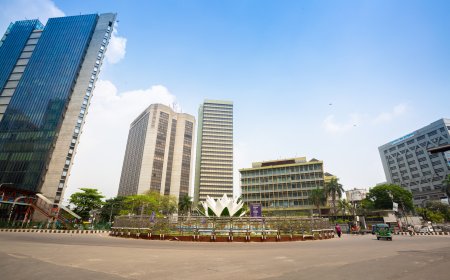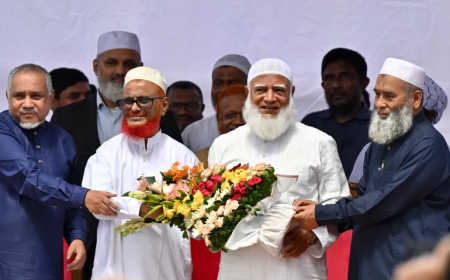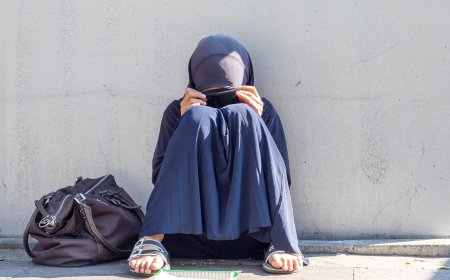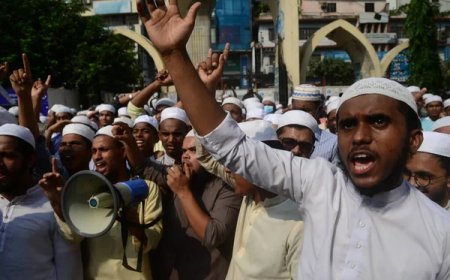11 Things You Need to Know About Enforced Disappearances and the Detention of Army Officers
Everything you wanted to know about the detention of the 15 army officers and the cases against them but were afraid to ask
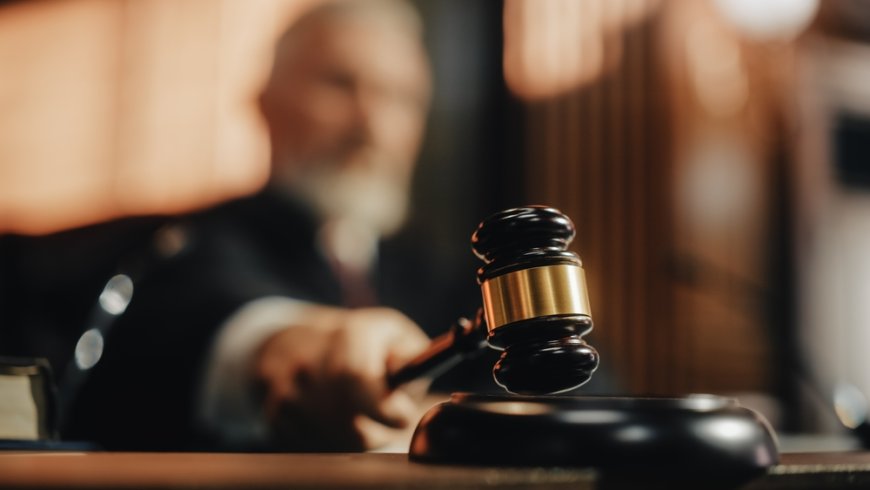
In a notable turn of events, Bangladesh's International Crimes Tribunal (ICT) issued warrants for the arrest of a total of 25 army officers, 15 of whom are now in detention. What has happened reflects a complicated picture. This is what you need to know:
1. THREE INDICTMENTS
The ICT has issued three indictments, all alleging that the accused committed crimes against humanity.
The first indictment charges ten army officers formerly serving in the military intelligence agency, the Directorate General of Forces Intelligence (DGFI) -- comprising five former Director Generals and five former Directors of the Counter-Terrorism Investigation Bureau (CTIB) -- with involvement in the secret detention of individuals at the Joint Interrogation Cell (JIC). (The Director General of DGFI serves as the agency’s head, while CTIB, a unit within DGFI, is responsible for maintaining the JIC.) In addition to these DGFI officers, the indictment also includes warrants against former Prime Minister Sheikh Hasina and her military adviser, retired Major General Tariq Ahmed Siddiqui.
The second indictment names thirteen senior army officers formerly serving in the Rapid Action Battalion (RAB) -- including two former Director Generals, four former Heads of Intelligence, seven heads or leading officers within the Operations wing -- accusing them of involvement in the enforced disappearance and secret detention of individuals at RAB’s Task Force for Intelligence (TFI) centre. This indictment also includes warrants against Hasina, Siddiqui, the former Home Minister Asaduzzaman Khan Kamal, and the former Inspector General of Police Benazir Ahmed.
The third indictment charges two army officers formerly serving with the Border Guard Bangladesh (BGB) with responsibility for 28 killings that took place in Rampura and Banashree on July 19, 2024, during the protests that ultimately led to the fall of the Sheikh Hasina government. Arrest warrants were also issued for two police officers in connection with this case.
2. SECONDED OFFICERS
At the time these army officers are alleged to have committed these offences, they were seconded by the army to one of three entities that were not under the direct control of the army. DGFI, reports to the prime minister, and the RAB and BGB report to the Home Minister. This allows the army to try and distance itself from the alleged crimes, making it able to claim that these offences took place under political, not army, direction.
This is not the first time that these five Director Generals of DGFI were the subject of arrests warrants relating to enforced disappearances. In January 2025, ten months earlier, the ICT had issued arrest warrants against the five, but according to Chapter 6 of the second report of the Commission on Enforced Disappearances, the country’s military leadership had “permitted [them] to abscond” before the arrest warrants could be executed. So whilst the country’s military leadership is this time not obstructing the ICT, it has -- it appears -- already allowed the more senior officers to escape.
4. COMFORTABLE DETENTION
Shortly after the ICT issued arrest warrants earlier this month, the named army officers were taken into custody by the army and held in a building within the cantonment, rather than in a regular prison. Although the Home Ministry later designated the facility as a sub-jail, it is evident that the officers are receiving preferential treatment compared to others accused of similar crimes. The arrangement also allows the army to retain a degree of control over their detention.
This situation has drawn considerable criticism; however, it appears to represent the price the government has had to pay to secure the army’s cooperation in detaining its own officers. On October 22, fifteen of the officers were brought before the court -- notably at 7am, well outside normal court hours and with very few observers present -- before being returned to the so-called sub-jail within the cantonment.
Several factors may explain the army’s cooperation with the International Crimes Tribunal (ICT) on this occasion.
First, as noted earlier, the most senior officers named in the warrants have already been allowed to abscond, reducing the institutional risk. Second, one of the victims of the Directorate General of Forces Intelligence (DGFI) -- detained for eight years in its secret facility -- was a retired army brigadier and the son of a former leader of the Jamaat-e-Islami, now a significant political force. This may have contributed to growing internal and political pressure for accountability.
In addition, the Commission on Enforced Disappearances has publicly detailed the involvement of both the DGFI and the Rapid Action Battalion (RAB) in enforced disappearances. Faced with these disclosures, the army may have recognized that maintaining total impunity for its officers was no longer tenable. Cooperation with the Tribunal could thus be seen as a strategic effort to demonstrate institutional accountability.
The army may also be seeking to signal that it has “learnt lessons” from the past and is willing to accept limited responsibility as a means of protecting its long-term reputation. Although undoubtedly unease persists among certain segments of the army over the prosecution of officers in a civilian court, this may be offset by a growing sense of frustration among junior ranks toward those who have damaged the institution’s reputation and a corresponding willingness to see them held to account.
Whatever the precise motivations, the army’s cooperation is notable -- particularly given the underlying tension and mutual distrust said to have existed between it and the Yunus government.
6. A RARE STEP
The prosecution of army officers in a non-military court in Bangladesh is highly unusual -- but this is not the first time it has happened. Under the Awami League, three army officers who led Rapid Action Battalion in Narayanganj, were indicted (and indeed convicted) for the disappearance and killing of seven men in 2014.
7. TOUGHER LEGAL FRAMEWORK
The first two indictments deal with enforced disappearances, but those accused army officers are not being prosecuted for a penal code offence of false imprisonment or a similar such offence. They are being prosecuted for the much more serious offence of Crimes against Humanity, a charge that is considerably more complex and demanding to prove.
Furthermore, the International Crimes (Tribunals) Act 1973 was amended since August 2024, aligning the definition of Crimes against Humanity more closely with that contained in the Rome Statute which established the International Criminal Court (ICC) in The Hague. The amended law also requires the International Crimes Tribunal (ICT) to take into account the “Elements of Crimes,” a supplementary interpretive text to the Rome Statute.
As a result, the evidentiary and legal thresholds for proving this offence are now significantly higher than those applied in earlier trials conducted in Bangladesh before August 5, 2024.
If the prosecutors and the court apply the law correctly, establishing guilt for the offence is far from straightforward. In relation to the two first two indictments, proving the accused’s involvement in an enforced disappearance is only the first step. They must in addition show that:
- The accused's conduct, relating to the enforced disappearance, "was committed as part of a widespread or systematic attack directed against a civilian population." (“Attack” means “a course of conduct involving the multiple commission of acts.”)
- That the attack, in question was "pursuant to or in furtherance of a State or organizational policy to commit such attack."
- And that the accused "knew that” his own conduct “was part of” or “intended to be part" of a widespread or systematic attack directed against a civilian population
10. LIKELY DEFENCES
In relation to the first two indictments, the accused may question whether the disappearance(s), in which they are alleged to have been involved, was part of a “widespread or systematic attack directed against a civilian population” and that, even if it was established, they may argue that there were unaware that their own conduct “was part of” or “intended to be part" of this attack.
Directors of DGFI’s Counter-Terrorism and Intelligence Bureau (CTIB) may also contend that their involvement was limited to maintaining the Joint Interrogation Centre (JIC), and that they played no role in decisions regarding the detention, transfer, or interrogation of individuals. Some CTIB directors may claim that they requested the release of detainees but that such requests were denied by their superiors, the Director Generals. While these arguments may mitigate culpability at the sentencing stage, they are unlikely to exonerate the accused entirely.
A further challenge for both prosecution and defence lies in the DGFI’s reported avoidance of documentation. The organization is said to rarely record internal applications, decisions, or operational details, resulting in very limited paperwork to substantiate either allegations or defences.
11. ENFORCED DISAPPEARANCE COMMISSION
The first two indictments draw heavily on the excellent work carried out by the Enforced Disappearances Commission, established by the interim government. This Commission stands out as one of the key success stories of the new administration, having already produced two high-quality reports.
As a side note, it should be observed that the government plans to dissolve the Enforced Disappearances Commission by the end of the year, even though its work remains very much incomplete.
The intention is for the National Human Rights Commission (NHRC), once reconstituted, to assume responsibility for this mandate. However, it appears unlikely that the new NHRC will have the necessary resources or capacity to address both the backlog of enforced disappearance cases and ongoing human rights violations effectively.
David Bergman has written on Bangladesh for many years. Follow him on X @TheDavidBergman or on Facebook david.bergman.77377.
What's Your Reaction?









